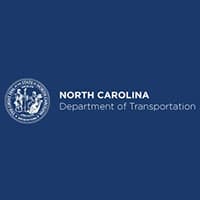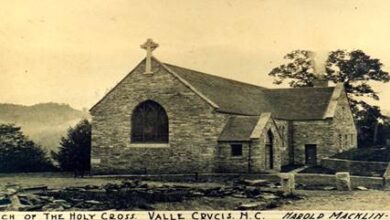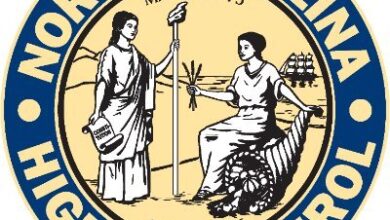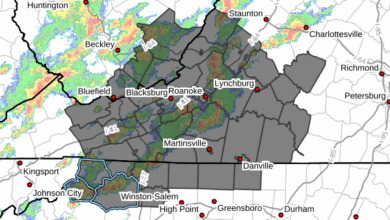
Last Updated on February 22, 2024 11:04 am
BOONE, N.C. — Fueled by a three-year, $1 million grant, Appalachian State University is implementing a Public Health AmeriCorps program to enhance public health preparedness and mental health training, resources and support in 25 rural Western North Carolina counties.
AmeriCorps is a federal agency that brings people together to tackle the country’s most pressing challenges through national service and volunteering. AmeriCorps members and volunteers serve with organizations dedicated to the improvement of communities. Public Health AmeriCorps is a new initiative made possible through a partnership between the Centers for Disease Control and Prevention and AmeriCorps, with funding from the American Rescue Plan Act. The program supports efforts to build a strong and diverse workforce that is ready to respond to the nation’s public health needs.
App State’s grant to launch the Public Health AmeriCorps project was awarded by the North Carolina Commission on Volunteerism and Community Service. The funding provides living allowances and educational awards to approximately 25 AmeriCorps members and fellows who are leading the effort. Many of the members are from the 25 rural counties served by the project, and some are pursuing graduate studies in public health.
Lead project investigator Jennifer Schroeder Tyson, lecturer in App State’s Department of Public Health and Exercise Science, is a former AmeriCorps worker with a background in emergency preparedness and maternal and child health.
“Our goal is to support the local leaders in each of our communities in Western North Carolina and assist them with moving their public health preparedness programming forward,” said Schroeder Tyson.
Grant funding for the program will help achieve these main goals:
- Recruit, train and develop new generations of public health leaders and Medical Reserve Corps members to respond to public health needs in North Carolina’s rural Appalachian communities.
- Provide pathways to quality public health-related careers through on-site experience and training, including psychological first aid training.
- Provide psychological first aid and other needed public health support to organizations, including local health departments, long-term care facilities and hospitals.
Establishing an Appalachian Medical Reserve Corps
Now in its second year of the three-year project, the Public Health AmeriCorps team is in the final stages of establishing the Appalachian Medical Reserve Corps in Western North Carolina. Medical Reserve Corps is a U.S. network of community-based units initiated and established by local organizations to meet the public health needs of their communities. Each unit is made up of a pool of community volunteers who implement strategies specific to their communities’ needs.
“The Appalachian Medical Reserve Corps will create a volunteer force and an environment that fosters community engagement and public health preparedness in our region,” said Schroeder Tyson. “It can be deployed in all aspects of public health preparedness and response activities.”
Examples of volunteer work include operating emergency shelters and vaccine clinics, providing disaster cleanup and recovery support, administering first aid and medical support for public events, and much more. The Appalachian Medical Reserve Corps will operate small support units in various counties in the region and will also work alongside other reserve corps units across the state and nationally.
“One example of Medical Reserve Corps deployment is with phone centers or call centers,” Schroeder Tyson said. “We utilized volunteers for the hurricanes that happened in Florida. They were able to take calls from people who had damage within their homes and fill out the paperwork needed to make a claim on the damage to FEMA.”
The Medical Reserve Corps received startup funding from the Public Health AmeriCorps grant but has since established an independent funding stream.
Recruitment and training for the Appalachian Medical Reserve Corps began in early January, with 35 volunteers signed on thus far. Those interested in joining the Appalachian Medical Reserve Corps are encouraged to fill out this interest form for more information.
Over 400 community members trained in psychological first aid
App State’s Public Health AmeriCorps program has trained over 400 community members in psychological first aid as of January. Psychological first aid aims to reduce stress symptoms and assist in a healthy recovery following a traumatic event, natural disaster, public health emergency or personal crisis.
Psychological first aid training equips individuals to help address people’s mental health needs and reduce psychological distress by providing a comforting presence and connecting them to resources. It also provides individuals with basic education on how to handle stressful situations.
Public Health AmeriCorps members continue to evaluate their efforts and make improvements, including restructuring the psychological first aid training to make it more personable and engaging and completing a Spanish translation of the training curriculum and materials.
Community members interested in psychological first aid training can learn more here.
A collaborative effort
In addition to Tyson, App State faculty members Dr. Martie Thompson and Dr. Adam Hege, professor and associate professor, respectively, in the Department of Public Health and Exercise Science, Dr. Maggie Sugg, associate professor in the Department of Geography and Planning, and Dr. Manan Roy, associate professor in the Department of Nutrition and Health Care Management, are guiding the efforts of the Public Health AmeriCorps members hired to work on the project.
Members fulfill a variety of roles — from team leaders to fellows — and are actively working in communities across Western North Carolina. Several of the program’s coordinators, including Karen Perez, Arianna Moore, Lauren Elliott, Samantha McNeill and Kira Plummer, graduated from App State in 2022.
“As a resident of a rural community, I’ve seen the disparities in access to health care,” said Plummer. “Many communities in Western North Carolina lack adequate mental health resources and outlets for community members to participate in sharing these resources. It’s an honor to work with my alma mater and establish relationships to help others.”
“My AmeriCorps service is making an impact in the community because my team and I are on the front lines engaging with our 25 counties on a day-to-day basis, providing resources and guidance for mental health and other factors that play into their well-being,” said Perez.
About the Department of Public Health and Exercise Science
The Department of Public Health and Exercise Science in Appalachian State University’s Beaver College of Health Sciences delivers student-centered education that is accentuated by quality teaching, scholarly activity and service. The department includes two undergraduate academic disciplines: exercise science and public health. The department also offers a master’s degree in exercise science, which prepares students for advanced study in a variety of related fields as well as research. Learn more at https://phes.appstate.edu.
About the Beaver College of Health Sciences
Appalachian State University’s Beaver College of Health Sciences (BCHS), opened in 2010, is transforming the health and quality of life for the communities it serves through interprofessional collaboration and innovation in teaching, scholarship, service and clinical outreach. BCHS offers nine undergraduate degree programs and seven graduate degree programs, which are organized into six departments: Nursing, Nutrition and Health Care Management, Public Health and Exercise Science, Recreation Management and Physical Education, Rehabilitation Sciences, and Social Work. The college’s academic programs are located in the Holmes Convocation Center on App State’s main campus and the Leon Levine Hall of Health Sciences, a state-of-the-art, 203,000-square-foot facility that is the cornerstone of the Wellness District. In addition, the college supports the Blue Cross NC Institute for Health and Human Services and has collaborative partnerships with the Wake Forest School of Medicine’s Physician Assistant Program, UNC Health Appalachian and numerous other health agencies. Learn more at https://healthsciences.appstate.edu.
About Appalachian State University
As a premier public institution, Appalachian State University prepares students to lead purposeful lives. App State is one of 17 campuses in the University of North Carolina System, with a national reputation for innovative teaching and opening access to a high-quality, affordable education for all. The university enrolls more than 21,000 students, has a low student-to-faculty ratio and offers more than 150 undergraduate and 80 graduate majors at its Boone and Hickory campuses and through App State Online. Learn more at https://www.appstate.edu.
















